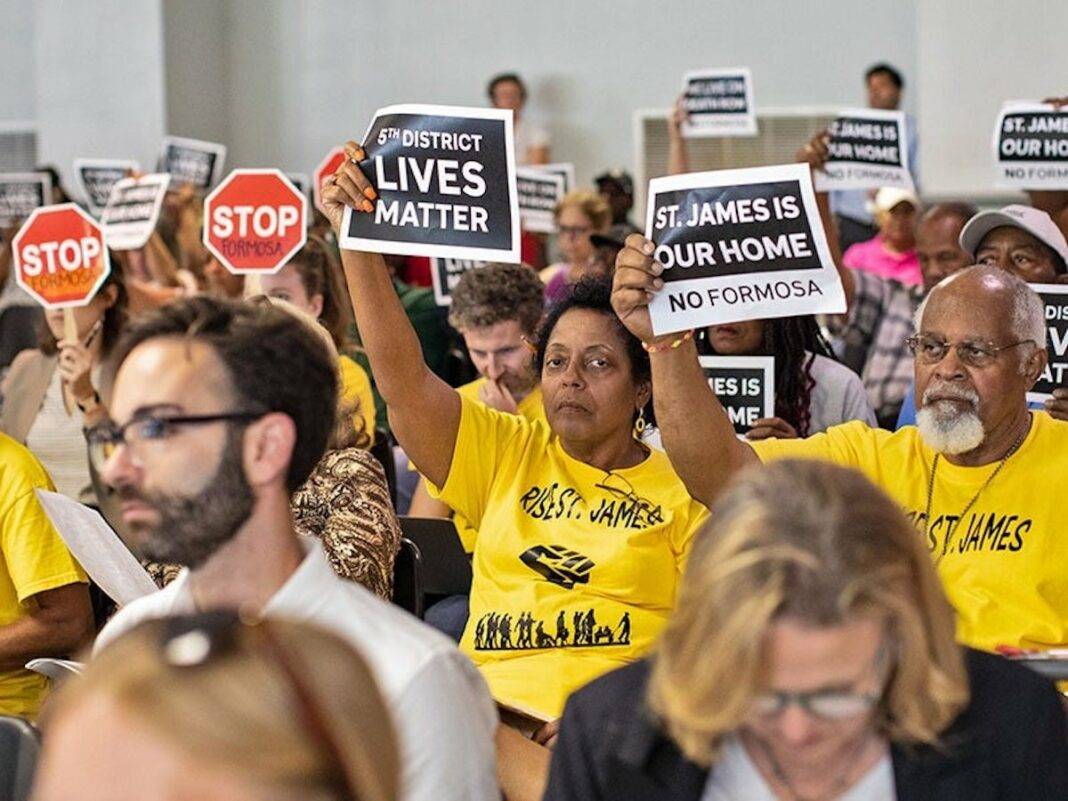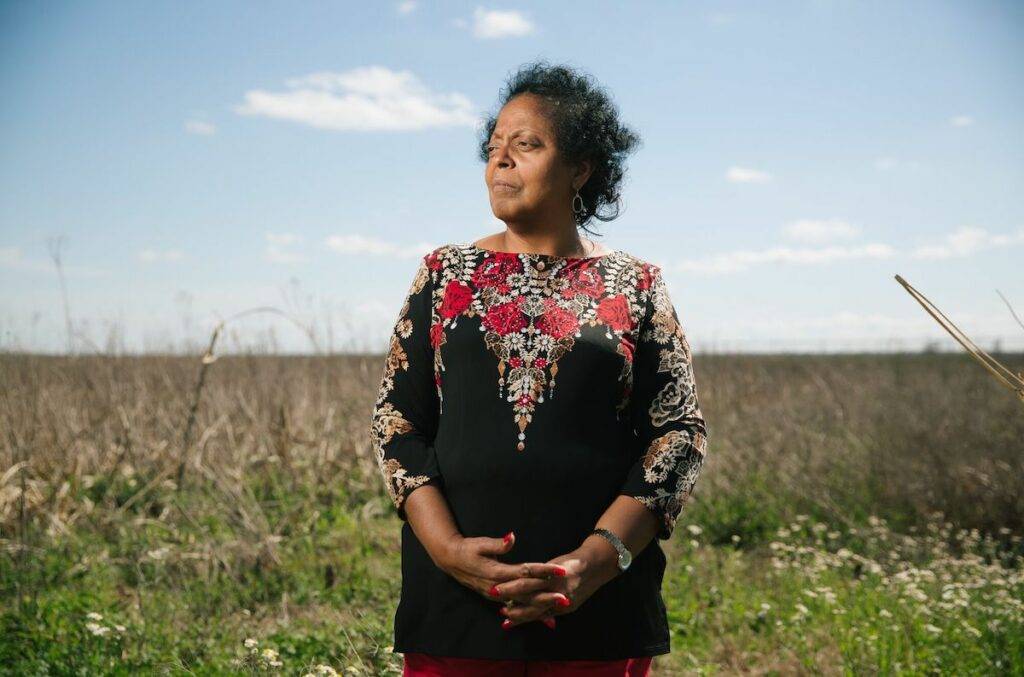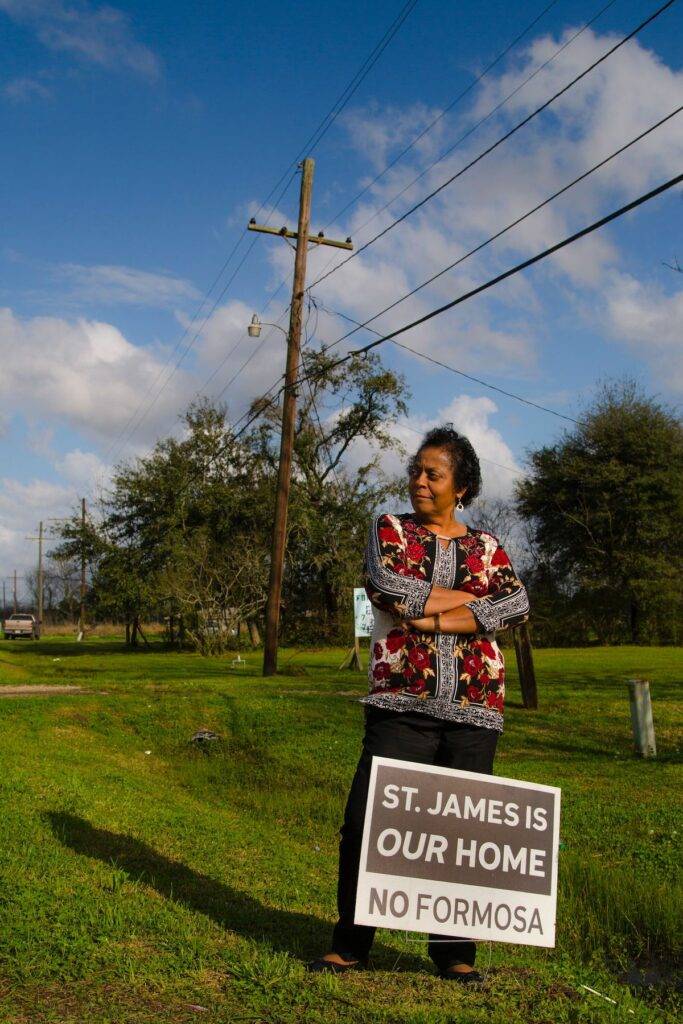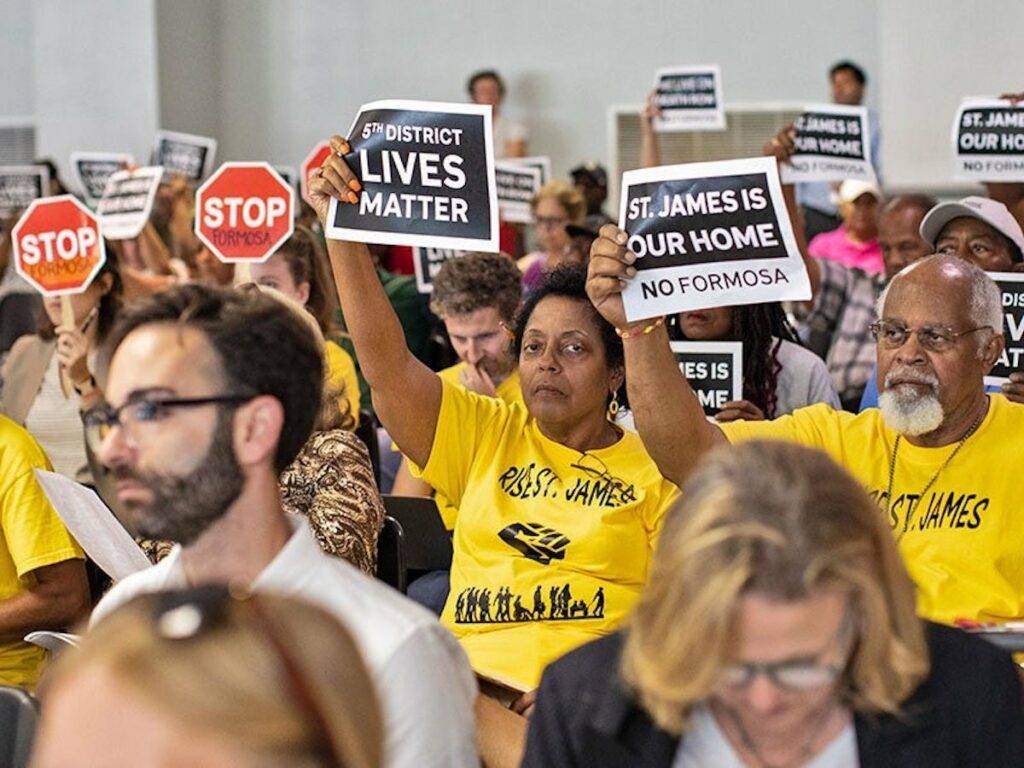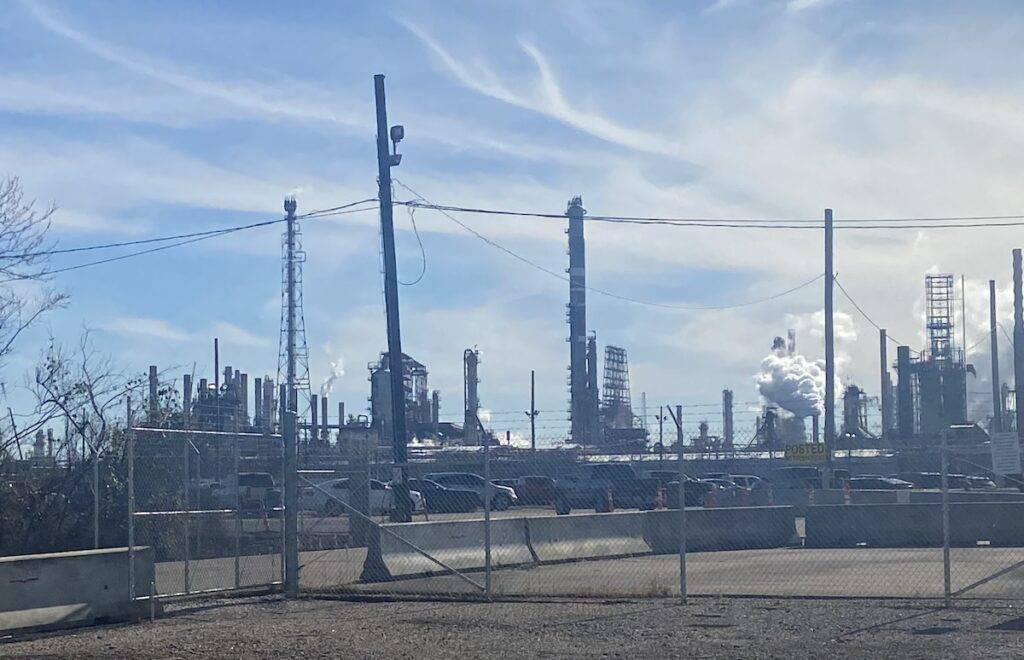When a new petrochemical polluter came to Sharon Lavigne’s already industry-heavy community of color, she rallied her neighbors, fought back, and won.
Sharon Lavigne had already lost neighbors to cancer and dealt with health issues herself when she learned in 2018 that yet another polluter planned to come to her hometown of St. James Parish, Louisiana. Formosa Plastics Group, a Taiwanese supplier of plastic resins and petrochemicals, intended to build 10 new chemical manufacturing plants within about a mile of Lavigne’s house, an elementary school, and several churches. The project would double to triple the levels of cancer-causing pollutants currently harming residents from existing industrial plants, according to EarthJustice, a non-profit environmental law organization.
The area was dubbed Cancer Alley because of the more than 100 petrochemical plants and refineries that punctuate the Mississippi River landscape from Baton Rouge to New Orleans. Residents of the area experience higher cancer risks due to air pollution, a link affirmed in the EPA’s National Air Toxics Assessment.
“We are boxed in from all sides by petrochemical plants, tank farms, and noisy railroad tracks,” says Sharon Lavigne. Unsure what to do about yet another threat, Lavigne says she prayed to God for advice: “Do I need to sell my home? He said no. I said, ‘Do I need to sell my land, the land that You gave me?’ He said no.” Instead, she says, she needed to advocate for herself and her community. “God told me to fight. I’ve been fighting ever since.”
The result is RISE St. James, a faith-driven advocacy group that Lavigne created to mobilize St. James residents through existing church communities. What RISE St. James wants is simple, Lavigne says: “We are looking to get a cleaner environment, where the citizens can be safe.”
To stop Formosa, one of the largest plastic manufacturers globally, Lavigne knew that she needed her neighbors to stand together. She held meetings at her house twice a month, inviting other residents and members of local churches.
RISE St. James protects people’s health, Lavigne says, by opposing new industrial projects. To fight Formosa, members knocked on doors speaking with fellow residents about the risks of the project. They organized town halls and invited experts to speak about the health and environmental impacts of the proposed chemical complex. They wrote letters to regional newspapers. And they partnered with other environmental justice groups in Cancer Alley, statewide, and nationally.
“It’s not just about us being angry. It’s our vision. How do we grow our community?” says co-founder and co-director of The Descendants Project, Joy Banner, who has supported the fight against Formosa and been on the frontlines of environmental justice struggles in Cancer Alley.
Jo Banner (her twin sister and co-founder and co-director of The Descendants Project) adds, “People ask, ‘Why do you stay here?’ We are rooted in love, love for our community.”
Kim Terrell, research scientist and director of community engagement at Tulane Environmental Law Clinic, studies the health impact of pollution in Louisiana and racial disparities. Her research demonstrates how Black neighborhoods continually bear the brunt of pollution in Louisiana. A peer-reviewed study by her team indicated that the state’s communities of color are exposed to seven to 21 times more industrial emissions than predominantly white neighborhoods. Cancer is just one of many health issues linked to pollution, Terrell says. “Parishes with higher respiratory hazards from air pollution had higher COVID-19 mortality rates.”
Zoning changes made in 2014 paved the way for industrial development in two of the three majority Black districts in St. James Parish, where respiratory illnesses and cancer are already common. In its 2014 land use plan specifically, the St. James Parish government changed its designations for the 4th and 5th districts from “residential” to “residential/future industrial.” While the parish overall has an even ratio of white and Black populations, the 4th and 5th districts have majorities of Black residents.
“They’re supposed to be for the people because we put them in office … I blame the government for not explaining to the people what they're putting in the community,” Lavigne says.
“There’s an active effort to kill off services in the 4th and 5th districts. They’re trying to depopulate to make way for these plants,” says Anne Rolfes, director of the Louisiana Bucket Brigade, a statewide grassroots environmental justice group. The Louisiana Bucket Brigade has partnered with RISE St. James since 2019 to fight Formosa together. The Brigade also connected RISE St. James with environmental law non-profit Earthjustice, which took up their case.
Despite 15,500 public comments submitted in opposition (including from RISE St. James members), the Louisiana Department of Environmental Quality (LDEQ) still approved Formosa’s application for 14 air permits in 2020. In response, Earthjustice lawyers challenged LDEQ’s decision in an appeal, representing RISE St. James along with allies Louisiana Bucket Brigade, Healthy Gulf, No Waste Louisiana, Center for Biological Diversity, Earthworks, and the Sierra Club.
Repeatedly, RISE St. James called on the St. James Parish Council and Louisiana Governor John Bel Edwards to issue moratoriums on new industrial projects. When the group’s demands were ignored or denied, RISE St. James members marched with signs that said, “ST. JAMES IS OUR HOME, NO FORMOSA” and “5TH DISTRICT LIVES MATTER.”
Rolfes says, “The moratorium did not happen, but we created a de facto moratorium with our efforts.”
In fact, RISE St. James, Earthjustice, and their allies secured a major victory in September 2022. The Louisiana courts threw out the air permits that Formosa needed to build the complex, reversing LDEQ’s prior decision. In spite of the continued health impacts from pollution and threat of more industrialization in Cancer Alley, the verdict brings hope.
“David has toppled Goliath,” Lavigne says. “The judge’s decision sends a message to polluters like Formosa that communities of color have a right to clean air, and we must not be sacrifice zones.”


